Loading...
This panel showcases exciting new work in Digital and Public Humanities in the U.S., bridging historical and archival methods, geography and digital mapping, and community-based archiving and storytelling. The scholar/activists and projects featured here creatively reimagine and challenge the borders between public and private, research and activism, analog and digital methods.
Moderated by Marisa Hicks-Alcaraz (Cultural Studies, CGU).
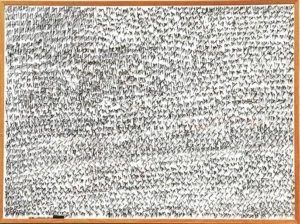
Speakers
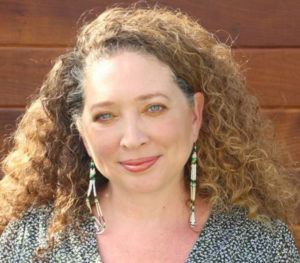 |
Mishuana GoemanTonawanda Band of Seneca. UCLA Professor of Gender Studies, American Indian Studies, and affiliated faculty of Critical Race Studies in the Law School. Co-PI of Mapping Indigenous LA and Carrying Our Ancestors Home. |
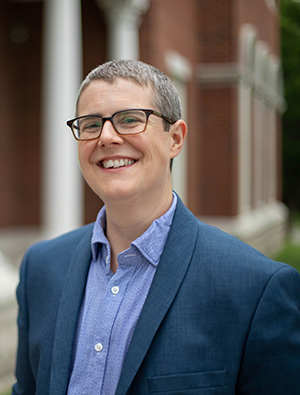 |
Jack GiesekingAssistant Professor of Geography at University of Kentucky whose projects include An Everyday Queer New York and Trans Tumblr. Author of A Queer New York: Geographies of Lesbians, Dykes,and Queers, 1983-2008 (NYU Press, 2020). |
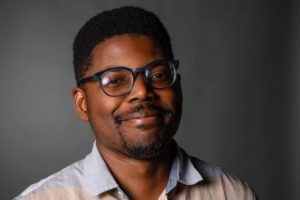 |
Justin D. WilliamsProject Archivist and Manager, South Side Home Movie Project |
Dr. Mishuana Goeman, Tonawanda Band of Seneca, is a Professor of Gender Studies, American Indian Studies, and affiliated faculty of Critical Race Studies in the Law School at UCLA. She is also the inaugural Special Advisor to the Chancellor on Native American and Indigenous Affairs at UCLA. She is the author of Mark My Words: Native Women Mapping Our Nations (University of Minnesota Press, 2013) and the forthcoming Settler Aesthetics and the Spectacle of Originary Moments: Terrence Malick’s the New World (University of Nebraska Press). She is a Co-PI on two community based digital projects, Mapping Indigenous L.A (2015), which gathers alternative maps of resiliency from Indigenous LA communities, and Carrying Our Ancestors Home (2019), a site concentrating on better working tribal relationships and communications as it concerns repatriation and NAGPRA. Book chapters are included in Theorizing Native Studies (Duke University Press, 2014), Sources and Methods in Indigenous Studies (Routledge 2016), Macmillan Interdisciplinary Handbooks: Gender: Sources, Perspectives, and Methodologies (2016), Critically Sovereign: Indigenous Gender, Sexuality, and Feminist Studies (Duke University Press, 2017) and a forthcoming chapter in Biopolitics – Geopolitics – Life: Settler-colonialism and Indigenous Presences (Duke University Press). She also publishes widely in peer-reviewed journals, including guest edited volumes on Native Feminisms and Indigenous Performances. In 2020-2021 she will be a Distinguished Visiting Scholar with the Center for Diversity Innovation at the University of Buffalo located in her home territories.
Jack Gieseking is an urban cultural geographer, feminist and queer theorist, and environmental psychologist. He is Assistant Professor of Geography at the University of Kentucky. His first monograph, A Queer New York: Geographies of Lesbians, Dykes, and Queers, 1983-2008 (NYU Press, 2020), is a historical geography of contemporary lesbian-queer society and economies in New York City. As part of their commitment to public queer history, Jack created a companion website including interactive maps of over 3,000 lesbian and queer places and organizations that they gathered from archival sources: jgieseking.org/AQNY. They also co-edited The People, Place, and Space Reader (Routledge, 2014) with William Mangold, Cindi Katz, Setha Low, and Susan Saegert.
Jack is presently conducting research on trans people’s use of Tumblr as a site of cultural production, and a hub for co-produced medical and health knowledge. He is Managing Editor of ACME: International Journal of Critical Geography, the only fully open access journal in geography. He is also a board member of the Rainbow Heritage Network. Jack has held fellowships with the Alexander von Humboldt Foundation as German Chancellor Fellow; The Center for Place, Culture, and Politics; The Center for Lesbian and Gay Studies; and the Woodrow Wilson Women’s Studies Dissertation Fellows Program. They can be found on Twitter at @jgieseking or via his website jgieseking.org.
Justin D. Williams is a steward of culture and memory and a facilitator of multimedia projects that study personal and communal narratives in order to preserve and elevate their importance in our society. His broad background in arts and culture spans media technology, public programming, documentary production, audio visual archives, and community-based, participatory designed projects. Currently, he is the Project Archivist & Manager of the South Side Home Movie Project (SSHMP). Prior to joining SSHMP, Justin has also worked for award winning companies Kartemquin Films, StoryCorps, City Bureau, and partnered with dozens of organizations to design and produce digital storytelling projects.
Marisa Hicks-Alacaraz
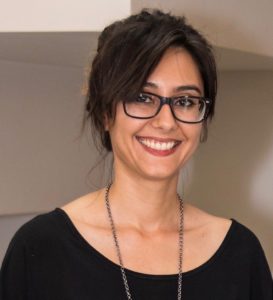
Claremont Graduate University occupies unceded Indigenous land. The Cultural Studies Department acknowledges the Gabrieleno/Tongva peoples as the ancestral caretakers of this land (Torojoatngna), and we pay our respects to Honuukvetam (ancestors), ‘Ahiihirom (elders), and ‘Eyoohiinkem (our relatives/relations) past, present, and emerging.